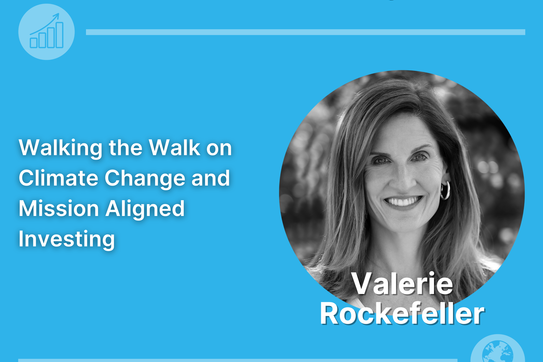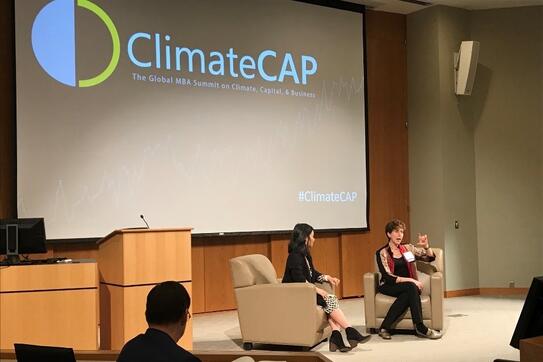Business and society
Carbon
Climate and finance
Climate and solutions
Social Enterprise
Walking the Walk on Climate Change and Mission Aligned Investing With Valerie Rockefeller
Valerie Rockefeller is one of the country’s most innovative leaders in the fight against climate change and in our transition to a low carbon economy. As chair of Rockefeller Brothers Fund, Rockefeller Philanthropy Advisors, and BankFWD, she is helping to pioneer ways to channel philanthropy and the capital markets towards a more inclusive and sustainable future.




